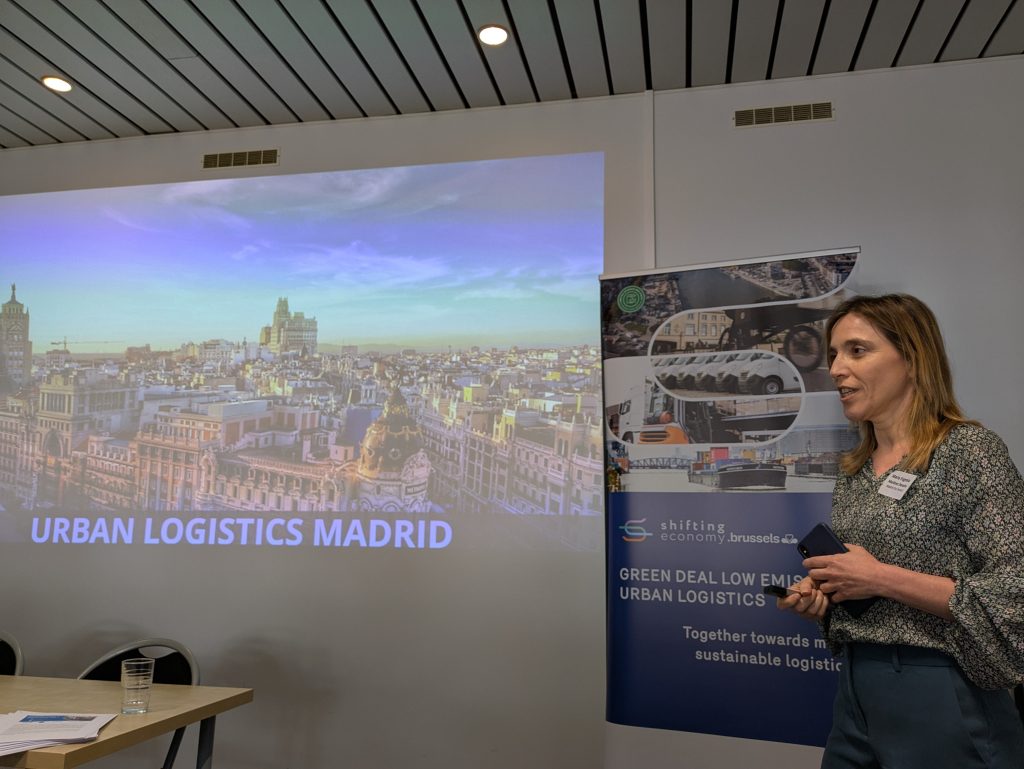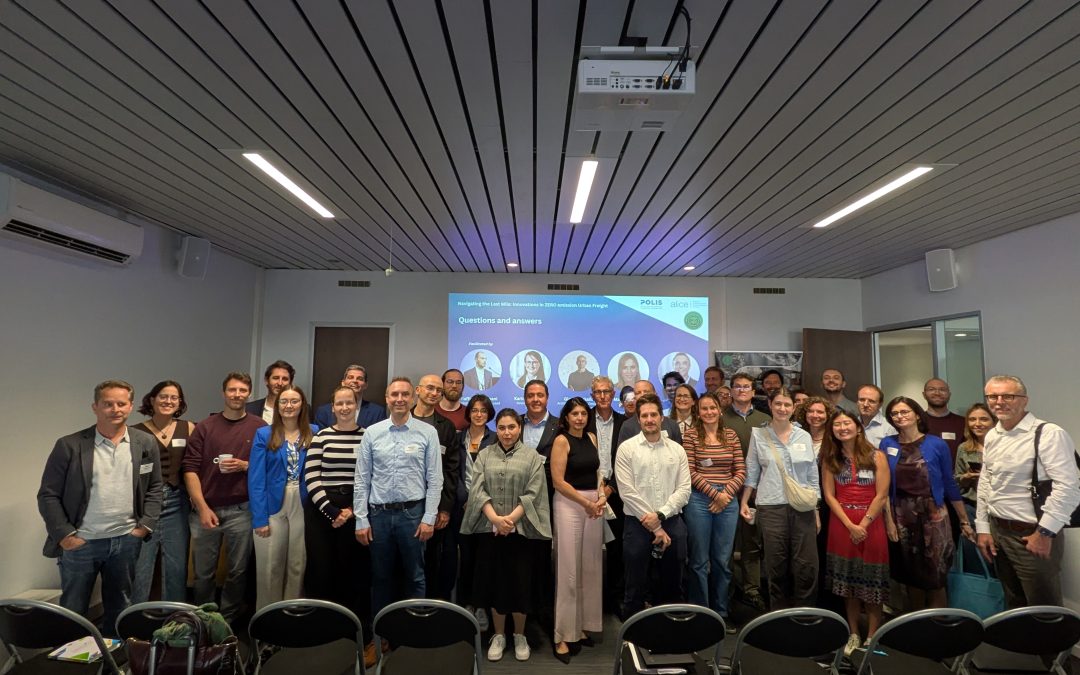Urban freight transport is a major contributor to greenhouse gas emissions, air pollution, traffic congestion, and road safety issues. Tackling these challenges is key to creating more sustainable, liveable, and resilient cities. As part of its mission to transform last-mile logistics, the URBANE project played an active role in the workshop ‘Navigating the Last Mile: Innovation in Zero Emission Urban Freight’, held over one and a half days in Brussels.
Jointly organised by POLIS and the Brussels Green Deal for Low Emission Logistics—and supported by ALICE and the URBANE City Platform—the workshop brought together a wide range of stakeholders from city authorities, logistics providers, and research institutions to explore forward-thinking solutions for sustainable urban freight.
URBANE was strongly represented, with active contributions from its City Platform members. The cities of Madrid and Hamburg delivered presentations on their approaches to zero-emission logistics, sharing lessons learned and real-world results from ongoing initiatives. Their insights highlighted the importance of integrating innovation with local policy, infrastructure, and public-private collaboration.
The event served as an excellent platform to showcase results and pilot activities from EU-funded projects, including URBANE, and to accelerate the exchange of knowledge and good practice. Through interactive sessions on the first afternoon and second morning, participants had the opportunity to engage directly with experts and peers on the practical challenges of decarbonising urban freight.
The workshop concluded with site visits across Brussels, offering a first-hand look at innovative logistics solutions implemented by members of the Brussels Green Deal.

